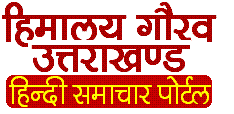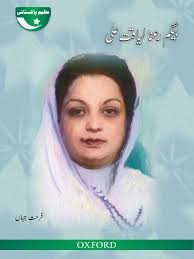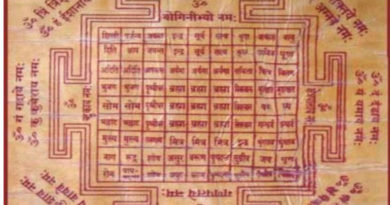पंत परिवार से थी पाक के प्रथम पीएम की पत्नी
Wife of first PM of Pakista from Almora Uttrakhand. Sheila Irene Pant was born in Almora, now in Uttarakhand ; पंत परिवार से थी पाक के प्रथम पीएम की पत्नी ; जिन्होने प्रारंभिक शिक्षा नैनीताल के एक स्त्री हाई स्कूल में प्राप्त की। बेगम रिना लियाकत अली 1990 में हरकत दिल बंद होने के कारण कराची में निधन हुआ : Wife of first PM of Pakista from Almora UTTRAKHAND;
Her real name was Sheila Irene pant. She was the daughter of British Indian Army Major-General.
एक्सक्लूसिव रिपोर्ट- चन्द्रशेखर जोशी सम्पादक हिमालय गौरव उत्तराखण्ड
बेगम रिना लियाकत अली पाकिस्तान के प्रथम प्रधानमंत्री की पत्नी थी जो पंत परिवार अल्मोडा से थी- नवाबजादा लियाक़त अली ख़ान पाकिस्तान के प्रथम प्रधानमंत्री थे जिन्होंने पाकिस्तान आंदोलन के दौरान मुहम्मद अली जिन्ना के साथ कई दौरे किये। भारत के प्रथम वाणिज्य मंत्री भी थे (अंग्रेज़ो के अधीन भारत)। इनका परिवार अंग्रेजों से अच्छे संबंध रखता था। सन् १९५१ में रावलपिण्डी में इनका क़त्ल हो गया ; लियाकत अली का जन्म 1 अक्टूबर 1895 करनाल, पंजाब, ब्रिटिश भारत में हुआ था
13 February 1905, Almora Died: 13 June 1990, Karachi, Pakistan Spouse: Liaquat Ali Khan (m. 1932–1951) Award: Nishan-e-Imtiaz (military) Education: University of Lucknow (1929), University of Lucknow (1927), Diocesan College, Calcutta Children: Ashraf Liaquat Books: Ra’ana Liaquat Ali Khan: Biography and Speeches ; Begum Raana Liaqat Ali Khan former governor of Sindh. She was wife of Pakistan’s first Prime Minister, Nawabzada Liaquat Ali Khan She was educated at the University of Lucknow where she obtained a first class Masters degree with honours in economics in 1929.
she was married to Nawabzada Liaquat Ali Khan. After the reorganization of Muslim League, Begum Ra’na Liaqat devoted herself to the task of creating political consciousness amongst the Muslim women. Her struggle for emancipation continued till the creation of Pakistan for Muslims of India in 1947.
She was appointed as governor sindh on February 15, 1973.She was the first Pakistani women governor. She was died on June 13, 1990 in Karachi.
बेगम रिना लियाकत अली, पाकिस्तान की प्रथम महिला रही, जो पाकिस्तान के पहले प्रधानमंत्री लियाकत अली खान की बेगम थी, आंदोलन पाकिस्तान के सदस्य और सिंध की पहली महिला राज्यपाल थीं।
बेगम रिना लियाकत अली लखनऊ, ब्रिटिश भारत में 1912 ई में पैदा हुईं। प्रारंभिक शिक्षा नैनीताल के एक स्त्री हाई स्कूल में प्राप्त की। लखनऊ विश्वविद्यालय से एमएअर्थशास्त्र और धार्मिक अध्ययन की पढ़ाई किया। कुछ समय शिक्षक रहें। 1933 में खान लियाकत अली खान से शादी हुई। पाकिस्तान बनने से पहले आप महिलाओं के एक संगठन “आपुआ” की स्थापना की। स्थापना पाकिस्तान के बाद रोजगार एक्सचेंज ओरागवा गये, लड़कियों की तलाश और शादियों विभाग उनके हवाले किए गए। संयुक्त की बैठक आयोजित 1952 में पाकिस्तान के प्रतिनिधि के रूप में शामिल थीं। 1954 ई। में नीदरलैंड और बाद में इटली में सफईराोर सिंध के राज्यपाल भी रही, 15 फ़रवरी, 1973 ; 28 फ़रवरी 1976 सिंध की राज्यपाल रही । बेगम रिना लियाकत अली 1990 में हरकत दिल बंद होने के कारण कराची में निधन बसे और तीर्थ नेता परिसर लियाकत अली खान के पहलू में एम्बेडेड हैं।
Wife of first PM of Pakista from Almora UTTRAKHAND;
Sheila Irene Pant, the wife of first PM of Pakistan, Mr. Liaqat Ali Khan belongs to Almora. She was the daughter of British Indian Army Major-General Hector Pant, whose Kumaoni Brahmin family was a convert to Christianity in 1887. Sheila Irene Pant was educated at the University of Lucknow . She began her career as a teacher in the Gokhale Memorial School, Calcutta. After her master’s degree she was appointed as Professor of economics in the Indraprastha College, Delhi in 1931. In 1932 Ms. Irene Pant married Liaqat Ali Khan and the latter changed her name from Sheila Irene Pant to Begum Ra’ana Liaqat Ali Khan. In the 1970s, she joined hands with Zulfikar Ali Bhutto’s political movement and joined the socialist government of Zulfikar Ali Bhutto, elected prime minister at that time. She was one of the most trusted and close government and economical advisers to Bhutto and his government, and had played influential role and involved with many key economical decisions taken by Zulfikar Ali Bhutto.Zulfikar Ali Bhutto led the appointment of Ra’ana as the Governor of Sindh Province, and she took the oath on 15 February 1973. Ra’ana was the first woman Governor of Sindh as well as first Chancellor of University of Karachi.In 1977, Ra’ana along with Bhutto and his party, and won the parliamentary elections of 1977, but did not take the gubernatorial office due to martial law imposed by General Zia-ul-Haq, Chief of Army Staff of Pakistan Army. Ra’ana went on to work and dedicated her life for the social and economic benefit of women of Pakistan till her death in 1990.
She died in 1990 due to cardiac arrest and was buried in Karachi, with full state and military honours given to her in her funeral. Because of her services and efforts for medical and woman development and woman empowerment, Ra’ana is commonly known as “Maader-e-Pakistan”
Sheila Irene Pant (Begum Ra’ana Liaquat Ali Khan) was born in year 1905 in Almora, Uttarakhand (then United Provinces of Agra and Oudh). She obtained a first class Masters degree with honors in economics from the University of Lucknow in 1929. Begum Ra’ana began her career as a teacher in the Gokhale Memorial School and was later appointed as Professor of Economics in the Indraprstha Girl College, Delhi.
In April 1933, she was married to Nawabzada Liaquat Ali Khan, the first Prime Minister of Pakistan. She then played a prominent role in the social and political life of Pakistan. After the reorganization of Muslim League, Begum Ra’ana devoted herself to the task of creating political consciousness amongst the Muslim women. Her struggle for emancipation continued till the creation of Pakistan for Muslims of India in 1947.
Liaquat Ali Khan was assassinated in 1951. Begum R’ana continued her services for the social and economic uplift of women of Pakistan till her death in 1990. Begum Ra’ana served as Pakistan’s ambassador to the Netherlands in the 1950s and as ambassador to Italy in the 1960s. She was the first woman Governor of Sindh province in the mid-1970s and the first Muslim woman delegate to the UN who also won the United Nations Human Rights Award.
Sheila Irene Pant was born in Almora, now in Uttarakhand, India, to a British Indian Army senior officer Major-General Major Hector Pant, whose Kumaon Brahmin (a high caste of Hindus) family was a recent convert to Christianity in 1887. Sheila Irene Pant attended the University of Lucknow, where she gained Double First Class Honours BA in Economic and BT in Religion studies in 1927. Later, she obtained double MSc in Economics and Sociology with Honors in 1929. She began her career as a teacher in the Gokhale Memorial School after completing the Teachers Diploma Course from the Diocesan College, Calcutta. After her master’s degree, Pant was appointed as Professor of Economics in the Indraprastha College, of Delhi in 1931. Pant met Liaqat Ali Khan when he came there to deliver a lecture on Law and Justice at the Indraprastha College in 1931. In December 1932, she converted to islam and married Liaqat Ali Khan. upon marriage she changed her name from Sheila Irene Pant to Begum Ra’ana Liaqat Ali Khan. After the reorganisation of the Muslim League, Begum Ra’ana devoted herself to the task of creating political consciousness amongst the Muslim women society of the British Indian Empire. During this time, Ra’anna became an executive member of Jinnah’s Working Committee and served there as economical adviser. Her struggle for emancipation and support for Pakistan continued till the creation of Pakistan for Muslims of India in 1947.
Ra’ana was the first First Lady of Pakistan. As First Lady, she initiated reforms for woman and child development and social progress of women, and played a major role for women’s part in Pakistan’s politics. After the assassination of her husband Liaquat Ali Khan in 1951, Begum Ra’ana continued her services for the social and economic benefit of women of Pakistan till her death in 1990. One of the daunting challenges for her was to organise health services for women and children migrating from India to Pakistan.
In 1947, as the refugees poured in from across the border, amidst the most pitiable of conditions with cholera, diarrhoea and smallpox being common sights everywhere, she called upon women to come forward and collect food and medical supplies from government offices. The women came forward despite the resistance they faced from certain sections of society, including certain newspapers where they were attacked in the most vicious manner by elements that did not want women to come out from their “four walls” She firmly believed that for a society to do justice to itself, it was pertinent that women played their due role in reforming society alongside the men.
During this point in Pakistan’s history there weren’t many nurses in Karachi, so Begum Liaquat asked the army to train women to give injections and first aid. Women were thus trained in three to six-month courses and as such the para-military forces for women were formed. The Pakistan Army quickly established Army Medical Corps and recruited a large number of women nurses as army nurses. During this period, girls were also personally encouraged by Begum Liaquat to take up nursing as a profession. They were also taught the rifle drill, to decode ciphers, typing and a host of other duties so they could be useful in times of national crisis like the refugee crisis of 1947.
1895 – 16 October 1951), widely known as Shaheed-e-Millat (Urdu: شہید ملت Martyr of the Nation), was one of the leading founding fathers of Pakistan, statesman, lawyer, and political theorist who became and served as the firstPrime Minister of Pakistan; in addition, he also held cabinet portfolio as the first foreign, defence, and the frontier regions minister from 1947 until his assassination in 1951. Allegations had been pointed towards the involvement of Afghan monarch Zahir Shah and the United States government in his assassination, though this claim has not merited any substantial evidence. Prior to that, he briefly tenured as the first finance minister in the interim government led by its Governor General Mountbatten.
He was born into an influential feudal Muslim – Marhal Nousherwani family in a small village of district Karnal named Jundla, Eastern Punjab on 1 October 1895. Ali Khan was educated at the Aligarh Muslim University in India, and then the Oxford University in the United Kingdom.
Ra’ana founded Pakistan Women National Guards (PWNG), and helped established the Pakistan Woman Naval Reserves in the Navy, and was appointed as the Chief Controller.[1] For her immense services to the military as a civilian, the Pakistan Army notably appointed her as the first woman Brigadier-General, and an honorary uniform was issued especially for her. The Pakistan Woman National Group was intended to fight for women’s rights and aimed to prevent brutal treatment of women, either received from their spouses or caused by domestic violence. At first, the organisation was successful and took strong initiatives in West-Pakistan to lower the rate of violence against women, as she was the organisation’s president.[1] But after her husband’s death, Ra’ana left Pakistan as she was appointed Pakistan’s Ambassador to the Netherlands. Following her departure, the Pakistan Women National Group was soon disbanded due to financial distress and the government’s apathy. However, the Pakistan Woman Naval Reserves still continues as of today where many women joined the Navy through this program.[1]The program has lasting effects in Pakistan’s Armed Forces, and the Army and Air Force later established a Woman Reserves program as part of her vision.
In 1949, Begum Ra’ana arranged a conference of over 100 active women from all over Pakistan. The conference announced the formation of a voluntary and non-political organisation for the social, educational and cultural uplift of the women, named All Pakistan Women’s Association (APWA).[4She was nominated as its first president and unlike Pakistan Women National Group, the APWA continued to grow as it continuously fought for women’s rights in Pakistan. For its services, the Government of Pakistan established APWA College in Lahore as part of its struggle
After her husband’s death, Ra’ana went on to start her career as a stateswoman that lasted more than 2 decades. In 1952, Ra’ana was the first Muslim woman delegate to the United Nations in 1952. In 1954, the Government of Pakistan had appointed her as Pakistan’s Ambassador to the Netherlands, and also was the first woman ambassador of Pakistan. She represented Pakistan in the Netherlands until 1961 and was also the doyen of the Diplomatic Corps. In June 1966, she was appointed as Pakistan’s Ambassador to Italy and stayed there until 1965. Later, she was directed to Tunisia as Pakistan’s Ambassador to Tunisia and held this position until March 1966. Following her return to Pakistan, Ra’ana joined Rana Liaquat Ali Khan Government College of Home Economics as Professor of Economics and stayed there until 1973. The Government College University awarded her an honorary doctorate in economics and conferred her with a Doctor of Philosophy in Economics in 1967.
HIMALAYA GAURAV UTTRAKHAND (www.himalayauk.org) Leading Digital Newsportal & Daily Newspaper; publish at Dehradun & Haridwar.
Report by ; CS JOSHI- EDITOR IN CHIEF.
Mob. 9412932030 Mail; csjoshi_editor@yahoo.in & himalayauk@gmail.com
Avaible in; FB, Twitter, e-edition & All Social Media.




